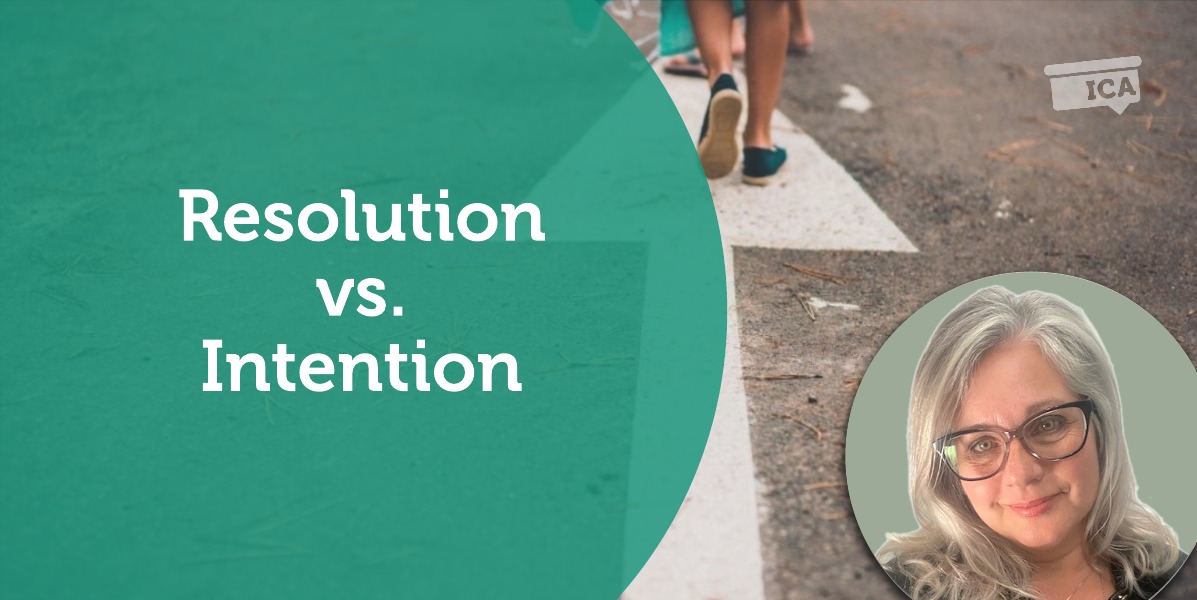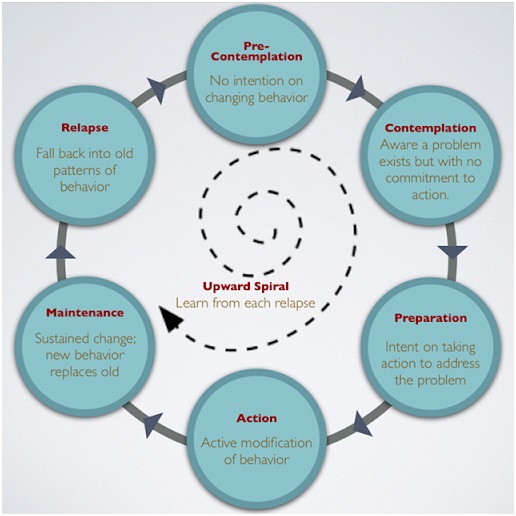
(Mindfulness/Life Coach, CANADA)
The secret to change is to focus all your energy not on fighting the old, but in building the new. Socrates
I was asked by a dear friend on New Year’s Eve 2020 what my resolutions were going forward into 2021, and I could feel that word, ‘resolution’ hit me in the solar plexus, I intuitively knew that ‘word’ did not fit where I intended to go in 2021. Perhaps after the COVID-19 experiences, we have all collectively endured globally including lockdowns, intense rules for safety including wearing masks, and not really knowing what rule was right or wrong but feeling restricted by all of them, my COVID fatigue was the reason?
Perhaps in my own mindfulness state of living that I continually practice, learn, and develop from, the idea of being resolute felt stringent and hard. Did a ‘resolution’ fit in with my ‘intention’ of who I want to be? What I do know, is when something makes me feel instinctive it is not right for me anymore-I need to act to find what is. I began to do some research and realize that for my own practice as a Mindfulness Coach, the tool of resolution vs intention deserved development and realization personally and professionally. I have clients discuss their resolution to change things in their lives and it does not ‘feel’ authentic to the coaching practice of cultivating learning or growth. What I have noticed with resolutions is that often more fear and attention is being placed on what is not wanted in one’s life than a focus on what it is that the person would like to begin to be. Other than this declaration of a wish or dare I say, dream, involving intense emotion, often a change plan is not realistic, relapse is seen as a failure, and there are no steps to define the map of where a client wants to go. What I realized on New Year’s Eve 2020, was that the formation from a wish to plan and hopeful success begins with the mindful reframing of words and thoughts. It needs to follow a realistic framework, gentle and rolling, like the journey of change itself.
The English Dictionary highlights resolution as a firm decision to do or not do something. (Dictionary.com, 2021). Whereas an intention is listed as a thing intended, an aim, a plan. (Dictionary.com, 2021).
A mindful reframe of just one word from resolution to intention opens the gateway to the beginning of a successful outcome.
It might seem to be a matter of semantics, but the difference between resolutions and intentions runs deeper than what might be apparent on the surface. Resolutions tend to be clearly defined, measurable, and specific. They view things as ‘this’ or ‘that’, often quietly judging behaviors to be either ‘good’ or ‘bad’.Intentions, on the other hand, are soft, qualitative, and compassionate. While they might include some degree of specificity, they are often difficult to measure is based on experience as it unfolds. Intentions embody a quality – and as we know, qualities are felt in the body before they are known in the mind. (Sanger).
When I was asked on New Year’s Eve about a resolution perhaps my mind was tired of the judgment of, ‘ do or do not, there is no try.’(Yoda, 1980). I am realizing with my clients in early 2021, that they are already stretching themselves and trying so hard just to live and find some joy in this new pandemic world, that stringent regulations of our own personal expectations on ourselves are not a true reality we can achieve for 2021. “Perhaps, it never truly was,” is what the insidious voice of the mind that wants to keep on talking, slithers in and whispers to you. When a resolution is not achieved, when failure comes, and we fall off the proverbial wagon. Alternately, when we lose our dream due to our own choices, the ever-ready and long-formulated, often played the story in our mind about being a failure, never making it, loops itself around our heart in a belief we will never achieve our aim. Maybe next year? Maybe never? As that snake of a thought slides around your wish and strangles your belief in yourself like the deadly python it is.
However, the intention is another word entirely. The intention has a purpose and the power of movement and action.
Intention comes from the Latin “intendere,” which means to lean towards, to move towards. This is the source of the energy that moves us in the desired direction. (Bloom, 2020)
In this forward movement of intention, one grows in the belief of achievement and begins to see the path of the journey of change open,
The intention has to do with a purpose, upon which one’s mind is concentrated and fixed. While desire is primarily a state of feeling, intention adds not only strength to that feeling but a commitment to take whatever action is necessary for the achievement of that desire. (Bloom, 2020)
This tool applies well with coaching when developing the ICF Coaching Competency 8-Cultivating Learning and Growth/Facilitating Client Growth. EspeciallyMarker 2, which invites the coach to partner with the client to design goals, actions, and accountability measures that integrate and expand new learning. When a client decides to set an intention for behavioral change as opposed to a resolution to, ‘do or do not,’ as coaches we can respond by facilitating growth and awareness with the client.
Coaching Clients ArriveReady For Intentional Change
In examining coaching models involving intention within the ICF Forum, I had the pleasure of learning through the Intention-Transformation-Extension (ITE) model that, in many instances, before our clients arrive in a session with us, they have consciously and unconsciously moved from the cycling of the belief of failing at resolution to the new journey of intention.
At the center of the Coaching agreement in each session, is what we call a – A Concrete Experience – where the client has had/ is having an experience of either emotional or intellectual significance. The client brings to the session, something that is impacting their life in a possibly negative or limiting manner. The client has already shown a willingness to explore, internalize and reflect upon the experience by bringing it to the Coaching session, and thereby displayed the INTENTION for growth and evolution. (Singh, 2019)
In fact, as examined in an ICF research paper, many of our clients chose the modality of coaching for themselves as a way forward out of a change process that is broken, perhaps namely the resolution construct of success or failure,
The success of all endeavors depends upon the timing at which change is sought and timing itself depends upon the awareness of the individual to no longer wish to be encumbered by the cycle they have been functioning in so far. (Sahai, 2016)
Our clients come to us ready for the next step on their path, ready to make a change from the broken constructs of past failures of goals that are not inspiring them to move forward.
Coaching Application
An intention evokes a commitment to the journey of change itself. When researching the Integrative Model for Change created by Prochaska and Diclemente, there are six stages to consider, Precontemplation, Contemplation, Preparation, Action Maintenance, and Relapse. (see figure 1) The Relapse integration into this change model was a game-changer in 1982 when it was created. According to the theory of this change model, learning comes from each relapse taking the client through an upward spiral through each cycle until full integration of behavioral change occurs. (The Cycle Of Change, 2012)
Part of the trek of change involves the reality of relapse and plans for handling this need to be part of this intentional behavioral change framework when we are coaching clients who are setting the intention to change behavior. Prochaska and Diclemente (1982) saw the need to include the stage of relapse when they published their Integrative Model for Change. They did a study on smoking cessation and defined the need to not only accept but integrate the reality of relapse in behavioral change when working in a therapeutic setting with clients.
The forces determining relapse include the popular hypotheses of the strength of the smoking habit pattern, weakness of commitment, environmental contingencies, or inadequacy of maintenance strategies or/and skills. (James O. Prochaska, 1982)
Another important finding from this research involves the expected times an individual goes through the cycles of change, including relapse before success and cessation of smoking became a lifestyle.
For successful former smokers, it took an average of three revolutions of change before they fully find their way of becoming fully free of the habit. (James O. Prochaska, 1982)
It is vital when coaching clients using the development of intention to expect and have plans in place for not if one relapses but when. In developing intentional change there is a place for relapse as part of the process. When a resolution is set, there is no room for error or learning, there is only success or failure.
Questions ForEvoking Awareness Of An Intentional Path
- How would this behavioral change make a real difference for you?
- What do you need to address to make this change?
- What supports will you put in place to achieve your goal?
- What is your plan for dealing with a relapse of your intentional change?
- What steps will you take to keep moving forward with your intention if relapse occurs?
- What measures of success can you develop to draw upon if a relapse happens?
- What is the learning you achieve by continuing to try?
- How can this learning be meaningful to you?
- How will you know your intended goal has fully been achieved?
Conclusion
Setting an intention to live a certain way in your life invokes a process. It allows a plan of forgiveness when we slip, after all, that is part of the learning on the journey of change. Intention open’s up the door to the expectation, acceptance, and planning for error, and then trying again with deeper learning of oneself and the process. The intention is the password to the pathway of lasting change.
Figure 1
References
Bloom, L. a. (2020, Jan 26). I Can and I Will-The Power of Intention. Retrieved from Psychology Today
Contillo, C. (2016, June 12). How Mindfulness Helps You Work With Intention. Retrieved from Idealist, org
Dictionary.com. (2021, Jan 9). English Dictionary. Retrieved from Dictionary.com
James O. Prochaska, c. D. (1982, Jan). Trans-Theoretical Therapy-Toward A More Integrative Model Of Change. Psychotherapy Theory Research & Practice, pp. 276-288.
Ph.D., L. G. (2016, Aug 16). Living With Intention. Retrieved from Psychology Today
Sahai, S. (2016, March 16). Coach-Portolifios/Reserch papers. Retrieved from Coach Campus.com
Sanger, J. F. (n.d.). Resolutions vs Intentions-A Soft Surrender Into Our Higher Selves. Retrieved from InsightTimer Blog
Singh, J. (2019, June 22). Coaching Model-Intention-Transformation-Extention. Retrieved from International Coaching Academy
The Cycle Of Change. (2012, Jan 9). Retrieved from SocialWorkTech.com
Yoda. (1980, June 20). Best Yoda Quotes. Retrieved from Star Wars.com